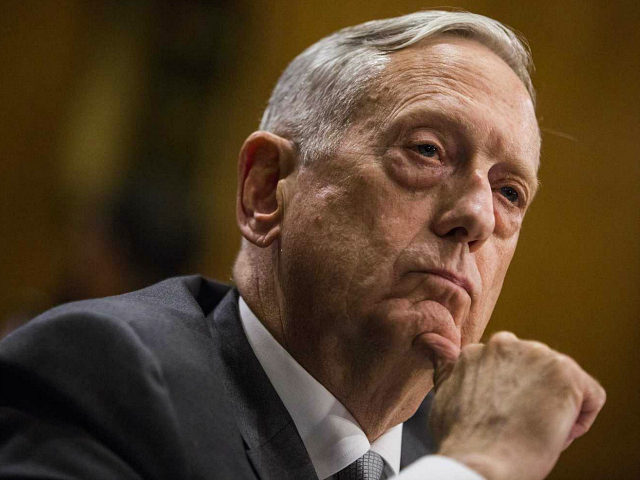Defense Secretary Jim Mattis plans to take his first official visit to China in the spring, to seek further cooperation on North Korea, according to the South China Morning Post (SCMP).
Pentagon Press Secretary Dana White told Kyodo news agency that it would be the first trip to China by a Pentagon chief in four years.
Mattis is expected to discuss measures to help rein in Pyongyang nuclear and missile programs, and to expand military-to-military exchanges between Washington and Beijing, SCMP reported.
He is expected to meet with top defense officials and possibly President Xi Jinping.
Mattis is likely to ask Beijing to apply more pressure on China to help the U.S. achieve a peaceful resolution to the North Korean nuclear issue, according to the report.
The U.S. and its partners have been working to stop North Korea from obtaining a nuclear weapon that can hit anywhere in the continental U.S., and Pyongyang has stepped up its efforts to achieve that goal within the last year. Some estimates say it could achieve that within the next year, if not months.
Tensions between the U.S. and North Korea ratcheted up last year, with President Trump and North Korean President Kim Jong-un exchanging a war of words. However, it has been relatively quiet as South Korea prepares to host the Winter Olympics, and North Korea has engaged in talks with Seoul over sending a delegation.
“We would love for it to use its influence more in Pyongyang,” White said of China, the nation’s largest trading partner. “We need their influence.”
On Monday evening, Trump spoke to Chinese President Xi Jinping via phone, and on Tuesday Secretary of State Rex Tillerson met with counterparts from nations who have sent troops or aid to South Korea during the Korean War, to discuss diplomatic efforts on North Korea.
Mattis is also expected to raise concerns with aggressive Chinese behavior in the East and South Chinese seas to expand its territorial claims, disputed by other nations in the region.
“The issue is how it does it, and whether or not it’s undermining the very systems that have allowed for its rise,” White said. “China has become more muscular concerning the South China Sea.”
Washington has rejected Beijing’s suggestion that the U.S. and South Korea stop joint military exercises directed at North Korea, in exchange for an end to the nuclear program.
“All messages from Mattis will help Chinese leaders come up with relevant strategies,” Song said.
Cui Zhiying, director of the Korean Peninsula Research Centre at Tongji University in Shanghai, told SCMP Mattis’ trip would increase understanding between the two countries.
“There are many things that the United States and China can cooperate on, but we’ll confront China when we need to,” White said.

COMMENTS
Please let us know if you're having issues with commenting.